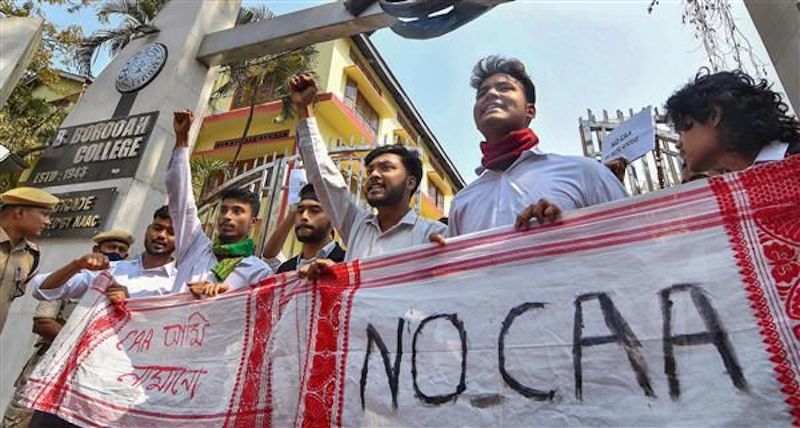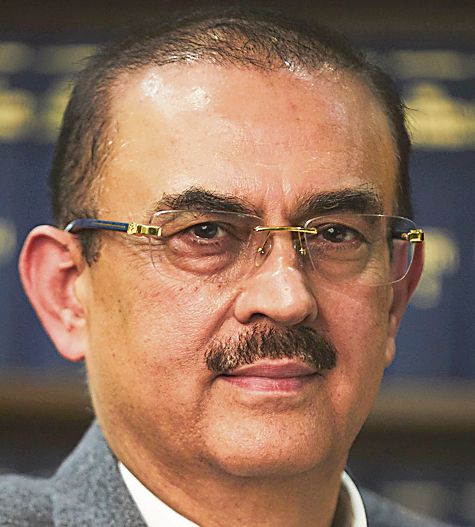
Photo for representation. PTI file photo
Vikas Singh
Senior Advocate, Supreme Court
The Tribune Debate Citizenship amendment act
WHEN India gained Independence after a hard-fought struggle, our founding fathers and mothers envisioned it as a secular country that would be a haven for people of all religions. The Partition saw an exodus of Hindus and Sikhs from Pakistan and East Bengal (later East Pakistan and now Bangladesh), who came to India in search of a new life and were welcomed with open arms. In a similar vein, the Citizenship (Amendment) Act, 2019, or the CAA, seeks to provide a smooth passage to Indian citizenship for Hindus, Sikhs, Buddhists, Jains, Parsis and Christians who fled Afghanistan, Bangladesh or Pakistan due to religious persecution.
The Citizenship Act, 1955, in its original form, prescribed that anyone born in the country after January 26, 1950, was considered to be an Indian citizen. This ceased to be the case after the Citizenship (Amendment) Act, 2003, came into force, introducing two new cut-off dates. Thus, anyone born in India after January 26, 1950, but before July 1, 1987, was an Indian citizen, but for people born between July 1, 1987, and December 3, 2004, it was necessary to have at least one parent who was a citizen of India to be considered an Indian citizen. Those born after December 3, 2004, must have both parents as Indian citizens, or if only one was an Indian national, the other must not be an ‘illegal migrant’ at the time of the person’s birth. In fact, it was by way of the 2003 Act that an ‘illegal migrant’ was defined for the first time as a foreigner who has entered India without a valid passport or other travel documents and is prohibited from applying for citizenship via registration or naturalisation.
The definition of an ‘illegal migrant’ has now been amended by the CAA to exclude any person belonging to the Hindu, Sikh, Buddhist, Jain, Parsi or Christian community from Afghanistan, Bangladesh or Pakistan who entered India on or before December 31, 2014, and who has been exempted by the Central Government under the Passport (Entry into India) Act, 1920, or the Foreigners Act, 1946, from the definition of an ‘illegal migrant’. Persons belonging to this group will now be deemed to be citizens of India from the date of their entry into India. Qualifications for naturalisation of such persons have also been relaxed. The person is required to have been residing in India or in government service in the country for not less than five of the preceding 14 years. For persons not falling in this group, the time period for residence in India or government service is not less than 11 of the preceding 14 years. The CAA has been hailed by the ruling dispensation as a landmark enactment that would welcome and protect refugees who fled religious persecution. However, several concerns remain unaddressed. The religious minorities listed may be facing great oppression in their home countries, but so do other minorities that have not been included. A few examples are people belonging to Islamic sects such as Hazara, Ahmadiyya and Shia, besides Jews, atheists and agnostics. Refugees belonging to only three countries would be protected under the CAA. Hence, this provision turns a blind eye to the dangers faced by Christians in Nepal, Rohingyas in Myanmar and people belonging to the Tamil race in Sri Lanka, all in India’s neighbourhood. For the CAA to be constitutionally valid, it must be proven that the classification made was a reasonable one and having a rational link with the object sought to be achieved.
While the stated humanitarian objective is laudable, it begs the question — why have people from other religions and those facing religious persecution in other neighbouring countries been left out? India is not a signatory to the 1951 UN Convention relating to the Status of Refugees and the 1967 Protocol relating to the Status of Refugees. This is understandable, given our large population and limited economic resources. However, there is a stark contrast between the CAA and the 1951 convention. The convention lists various axes of oppression that may be faced by refugees — race, religion, nationality, membership in a particular social group or political opinion — and prohibits the contracting states from discriminating against them on the basis of race, religion or country of origin. The CAA would have fallen foul of the convention on this aspect alone.
I represented the Assam Advocates Association in the challenge to the CAA in the Supreme Court. States from the North East face a greater burden upon the CAA’s implementation and illegal migration from porous borders, which has been a burning political issue for decades. The Assam Accord of 1985, which led to the insertion of Section 6A in the Citizenship Act, established a cut-off date of March 24, 1971. No illegal migrant entering Assam after this date would be given Indian citizenship. This date has now been revised to December 31, 2014, by virtue of the CAA. This has led to justifiable apprehensions of a demographic overhaul in Assam and other northeastern states, although exceptions have been carved out in the CAA for tribal areas included in the Sixth Schedule and the area covered under ‘The Inner Line’ notified under the Bengal Eastern Frontier Regulation, 1873.
We must bear in mind that it has been almost 77 years since India gained Independence, and we have stepped into the modern era. We must no longer allow ourselves to be governed by the invisible scars left by the Partition. India was formed on the premise of being a multicultural, secular democracy. The religious classification as well as the exclusion of other neighbouring countries from the CAA cast doubts, perhaps unintentionally, on the secular credentials of the country. This aspect has unfortunately overshadowed the welfare-oriented aim of the legislation.
Join Whatsapp Channel of The Tribune for latest updates.




























